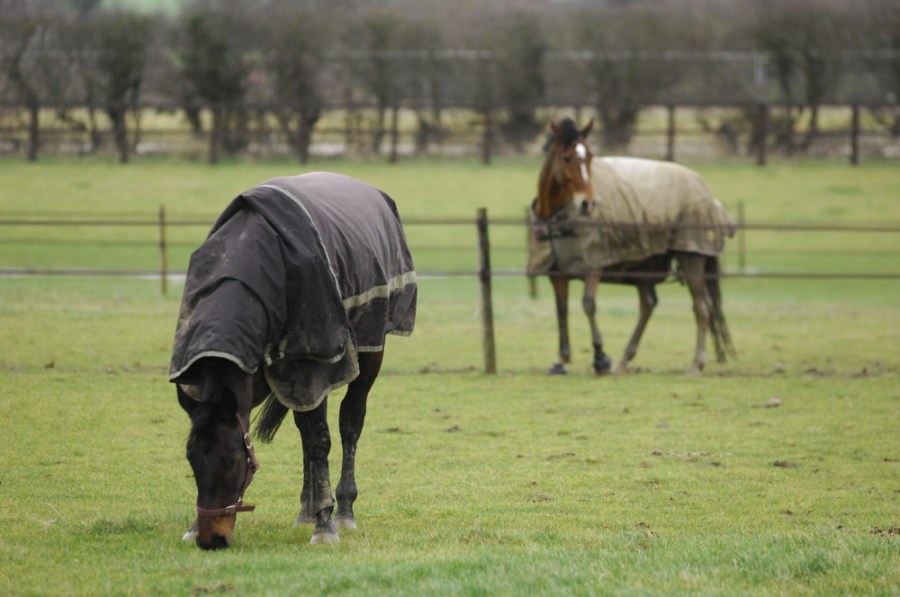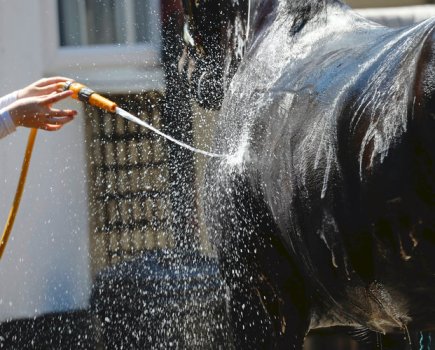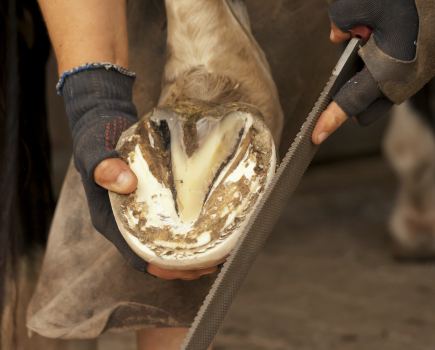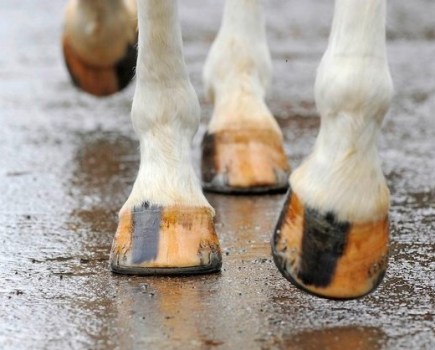The dreaded C word for all horse owners: colic. It’s the term used to describe abdominal pain in the horse, and can be caused by a number of different things, one of which seems to be seasonal changes. But there’s a little more to it than just dropping temperatures and shorter days, says veterinary surgeon Dr Mike Barton.
Gassy colic, otherwise known as spasmodic colic, is a condition where the horse’s bowel becomes hyperactive and spasms. This over-activity of the gastrointestinal tract differs to other more dangerous types of colic, which may be caused by impaction of food material or by areas of the gut becoming twisted.
Any change in routine or diet may trigger an episode of gassy colic, for example box resting after an orthopaedic injury or the sudden availability of turnout in the spring. As winter approaches, we as owners impose sudden management changes such as changing from grass as the main source of fibre to hay, or from hay to haylage, which is why spasmodic colic can be described as seasonal.
A horse affected by any type of colic is likely to be at an increased risk of further colic episodes in the future.
What should owners look out for?
Clinical signs for gassy colic include:
- audibly increased gut sounds heard by a bystander
- food aversion
- reduced faecal output
- possible sweating
- rolling
- Flehmen response
The pain associated with spasmodic colic can appear to come in waves, with the horse becoming painful and then seeming to have some improvement between painful episodes. This differs to other types of colic, such as displacement or twisting of the gut, where the horse presents as more continuously painful with their distress continuing to worsen.
When to call the vet
A veterinary examination should be carried out when any signs of colic arise. Your vet will usually check your horse’s gum colour and capillary refill time, respiratory rate, heart rate and auscultation of gut sounds.
In an uncomplicated spasmodic colic, these findings are likely to be normal apart from an increase in gut sounds.
A rectal examination may then be carried out to assess if there are any areas of the gastrointestinal tract that are of concern, although this is not a definitive diagnostic test as one can only palpate the caudal third of the abdominal contents.
Treatment options
Most horses with spasmodic colic respond to injections of non-steroidal anti-inflammatory drugs and antispasmodics that relax the intestinal muscles. Non-response to this treatment may be an indicator that further treatment or surgery may be required.
Meet the expert: Dr Mike Barton BVSc Cert AVP (ED) MRCVS is a veterinary surgeon at Fellowes Farm Equine Clinic in Cambridgeshire. He is an advanced practitioner and certificate holder in Equine Dentistry and has additional interest in poor performance cases. He is also a member of the GB men’s Horseball team.








